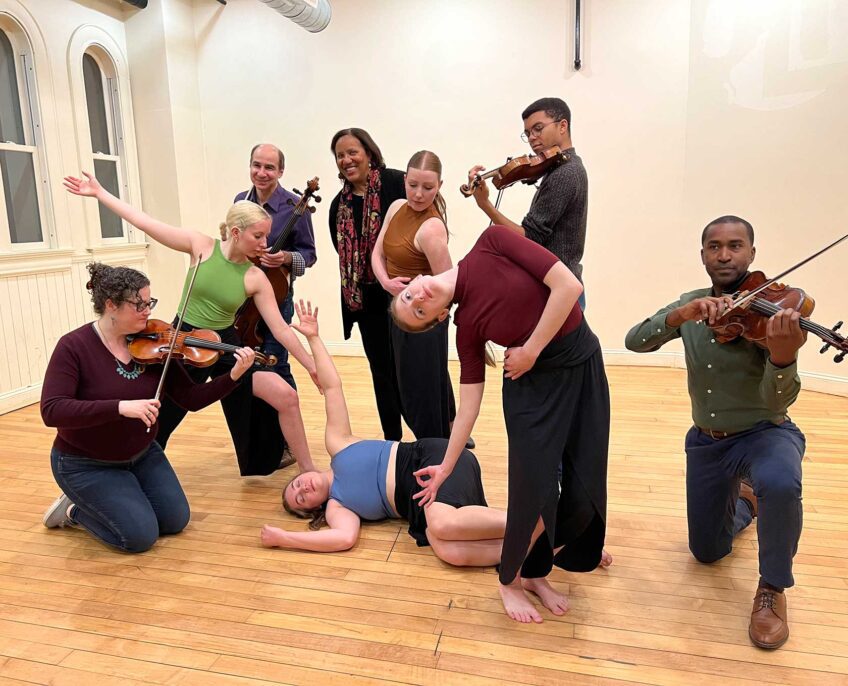Touré, host of MSNBC’s “The Cycle,” gave a candid lecture at the African Meeting House last Saturday about the portrayal of blacks in two Oscar-winning films, Quentin Tarantino’s “Django Unchained” and Steven Spielberg’s “Lincoln.”
Both stories take place around the same time period, but Touré had little good to say of “Lincoln.” In fact, he said he fell asleep at the first screening of the film and when he did watch it in its entirety, he was deplored.
“I did not appreciate that it was yet another movie about black history in which black people are not part of the story at all,” Touré said on Beacon Hill. “There is no agency; they are sidelined throughout the whole piece. It’s a film more honest to the past as opposed to ‘Django,’ which is the past constructed through a modernized lens.”
Touré is the author of four books, including Who’s Afraid of Post-Blackness? and the recently published I Would Die 4 U: Why Prince Became an Icon. His lecture, “Lincoln, Django and the Portrayal of Blacks in Period Films,” was a presentation of the Museum of African American History’s Lowell Lecture Series.
Through a modern lens, Toure explains, the historical visionist is able to lay contemporary dreams on top of past history.
“It was tremendously cathartic to watch this freed slave whip slave masters, kill slave masters and destroy a plantation,” said Touré, who also asked the question, “What is wrong with righteous violence in the service of moral justice?”
“Django” stars Jamie Foxx as the title character, an ex-slave and bounty hunter on a mission to rescue his damsel in distress from a Mississippi slaveholding plantation known as Candie Land. The rescue of Broomhilda, played by Kerry Washington, takes Django and his partner Dr. Schultz, played by Christoph Waltz, on a bloody and triumphant quest through the slaveholding South.
But lots of people took issue with this idea of Django, especially director Spike Lee, who refused to see the movie and called it an insult to his ancestors.
In a tweet to his Twitter followers in December 2012, Lee said, “American Slavery Was Not A Sergio Leone Spaghetti Western. It Was A Holocaust. My Ancestors Are Slaves. Stolen From Africa. I Will Honor Them.”
But Touré said he thought it was silly to suggest that a filmmaker be bound by history outside of the documentary context. In jest, he said, “I think that if we were to wake up the ancestors and take them to a movie theater and show them ‘Django,’ they’d probably be pleased. And if we showed them ‘Do The Right Thing’ and asked them which one would they would rather see again, they might say ‘Django.’”
In Touré’s analysis, Django was a film that explored three forms of love: for one, a romantic love between Django and Broomhilda.
“This is a magnet sort of love that leads Django to his freedom and his life,” he explained. “We never see this type of love between black people in Hollywood films.”
Toure expounded on the friendly form of love illustrated in the loyalty between Django and Dr. Schultz.
“This love contributes to one of the most controversial moments in the film,” Touré added.
A third form of love conveyed in the movie and discussed by Touré at length was the self-love that radiated from Django from the moment he is free from the cloak of slavery.
“In the first scene, [Django] throws off his cape and it might have brought to mind James Brown,” joked Touré. “He takes on this body language from that moment forth. He walks around looking proud and strong and tall. He loves himself in a self-confident way and it is really this important gesture, that self-love that is so important to me in terms of understanding the depth of this great character that Tarantino created.”




![Banner [Virtual] Art Gallery](https://baystatebanner.com/wp-content/uploads/2024/04/NJ-H_1-713x848.jpg)

